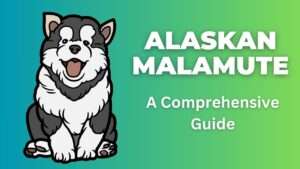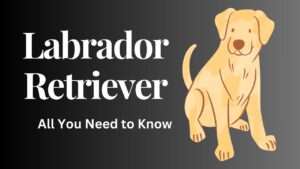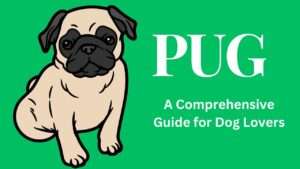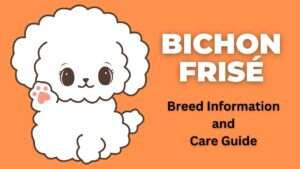Are you ready to embark on a journey into the world of one of the most captivating canine companions? Picture this: a breed renowned for its intelligence, loyalty, and undeniable charm—enter the Collie. From their striking appearance to their remarkable abilities, let’s delve into what makes Collies truly special.
Contents Overview
Breed Overview of Collie
Size:
Collies come in two main varieties: the Rough Collie and the Smooth Collie. Both types typically fall within the medium to large size category.
- Rough Collies: These majestic beauties stand between 22 to 26 inches (56 to 66 cm) at the shoulder, with males being slightly larger than females.
- Smooth Collies: Slightly smaller, they typically range from 20 to 24 inches (51 to 61 cm) in height.
Appearance:
The Collie’s appearance is iconic, with its flowing coat and expressive eyes capturing hearts worldwide.
- Rough Collies: Their most distinguishing feature is their luxurious double coat, consisting of a soft, dense undercoat and a longer, harsh-textured outer coat. Their mane-like ruff around the neck and feathering on the legs further adds to their regal appearance.
- Smooth Collies: As the name suggests, Smooth Collies have a shorter, dense coat that lies close to the body, requiring less grooming compared to their Rough counterparts. Their expression is just as striking, with a keen and intelligent gaze.
Life Span:
When you welcome a Collie into your home, you’re signing up for years of companionship and devotion.
- On average, Collies have a lifespan of 10 to 14 years.
- With proper care, nutrition, and regular exercise, many Collies live well into their teens, enriching the lives of their families with each passing year.
History and Origins of Collie
The history of the Collie is as rich and fascinating as the breed itself, tracing back centuries with roots deeply embedded in the pastoral landscapes of Scotland and England.
Origins:
- The Collie’s ancestors were likely brought to the British Isles by the Romans around 2,000 years ago.
- Initially developed as a working dog to tend livestock, the Collie’s keen intellect, agility, and unwavering loyalty made it indispensable to shepherds in the rugged terrains of Scotland and northern England.
Evolution:
- Over time, selective breeding refined the Collie’s traits, emphasizing characteristics such as intelligence, trainability, and a natural instinct for herding.
- By the 18th century, the Collie had become a distinct breed, valued not only for its working prowess but also for its striking appearance and gentle demeanor.
Popularity Surge:
- The Collie gained widespread recognition and popularity in the 19th century, thanks in part to Queen Victoria, who became enamored with the breed after visiting the Scottish Highlands.
- Queen Victoria’s patronage elevated the Collie’s status, propelling it into the spotlight as a beloved companion and show dog.
The Lassie Phenomenon:
- Perhaps the most significant boost to the Collie’s fame came in the 20th century with the emergence of Lassie, a fictional Rough Collie hero immortalized in books, films, and television series.
- Lassie’s intelligence, courage, and unwavering loyalty captured the hearts of audiences worldwide, cementing the Collie’s place in popular culture.
Continued Legacy:
- Today, the Collie remains a cherished breed, cherished for its versatility, beauty, and affectionate nature.
- Whether working alongside farmers, excelling in various dog sports, or simply lounging by the hearth as a beloved family pet, the Collie continues to enchant and inspire dog lovers around the globe.
Temperament and Personality of Collie
The Collie’s temperament is as remarkable as its striking appearance, characterized by a unique blend of intelligence, gentleness, and unwavering loyalty.
Intelligence:
- Renowned for their sharp intellect, Collies rank among the most intelligent dog breeds.
- They possess a keen ability to learn and excel in various activities, from obedience and agility trials to herding competitions.
Gentleness:
- Collies are known for their gentle and sensitive nature, making them excellent companions for families with children and other pets.
- Their innate nurturing instinct often extends beyond their own family members, as Collies have been known to show kindness and empathy towards strangers and other animals.
Loyalty:
- Loyalty is ingrained in the Collie’s DNA, stemming from their history as faithful working partners to shepherds.
- They form strong bonds with their human companions and are dedicated protectors of their loved ones, often displaying an intuitive understanding of their family’s emotions and needs.
Playfulness:
- Despite their dignified demeanor, Collies have a playful side that delights their families.
- They enjoy interactive games, long walks, and engaging in activities that stimulate their minds and bodies.
Alertness:
- Collies possess a natural instinct to be vigilant and alert, making them excellent watchdogs.
- They are quick to notify their families of any potential threats or unfamiliar occurrences, yet their gentle disposition means they are more likely to bark as a warning rather than act aggressively.
Adaptability:
- Collies are adaptable companions who thrive in various living situations, whether in rural settings with ample space to roam or urban environments with a more confined space.
- Their versatility makes them well-suited to a range of lifestyles, provided they receive adequate mental and physical stimulation.
In essence, the Collie’s temperament encompasses a harmonious balance of intelligence, gentleness, loyalty, and adaptability, making them cherished companions and beloved members of countless households around the world.
Exercise and Training Needs of Collie
Ensuring that your Collie receives proper exercise and training is essential to their physical health and mental well-being. Let’s delve into the specific needs of this intelligent and active breed:
Exercise Requirements:
- Collies are a moderately active breed and require regular exercise to stay healthy and happy.
- Aim for at least 60 to 90 minutes of exercise each day to keep your Collie mentally stimulated and physically fit.
- Activities such as brisk walks, jogging, hiking, and interactive play sessions are ideal for fulfilling their exercise needs.
- Engaging in canine sports like agility, obedience trials, and herding can provide additional mental and physical stimulation for your Collie.
Training Needs:
- Collies are highly intelligent and eager to please, making them relatively easy to train.
- Consistency, positive reinforcement, and patience are key when training a Collie.
- Start obedience training and socialization early to help your Collie develop into a well-mannered and confident companion.
- Use rewards such as treats, praise, and playtime to motivate and reinforce desired behaviors.
- Incorporate mental stimulation into your Collie’s daily routine through puzzle toys, obedience exercises, and interactive games to prevent boredom and channel their intelligence constructively.
Herding Instinct:
- Due to their herding heritage, Collies may display instinctual behaviors such as nipping at heels or attempting to herd family members, particularly children and other pets.
- Proper training and redirection can help manage these behaviors and prevent any potential issues.
- Providing outlets for their natural instincts, such as participating in herding trials or engaging in activities like Treibball, can help satisfy their innate drive to work and herd.
Consistency and Leadership:
- Collies thrive in environments with clear rules and consistent leadership.
- Establish yourself as the pack leader through positive reinforcement training techniques and setting boundaries from the beginning.
- Be patient, firm, and fair in your training approach, and your Collie will respond positively to your guidance.
By meeting their exercise and training needs with dedication and consistency, you’ll not only ensure the physical and mental well-being of your Collie but also strengthen the bond between you and your beloved companion.
Collie’s coat: Type and Length
The Collie’s coat is one of its most distinctive features, adding to the breed’s elegance and allure. Let’s explore the types and lengths of Collie coats:
Type:
- Rough Collie:
- The Rough Collie’s coat is lush, abundant, and weather-resistant, designed to protect them from the harsh elements encountered while herding in rugged terrains.
- It consists of a dense, soft undercoat that provides insulation and a longer, coarser outer coat that repels moisture and debris.
- The Rough Collie’s coat forms a luxurious mane-like ruff around the neck and feathering on the legs, enhancing their majestic appearance.
- Smooth Collie:
- The Smooth Collie’s coat is sleek, flat, and lies close to the body, requiring less maintenance compared to the Rough Collie’s coat.
- While lacking the profuse mane and feathering of their Rough counterparts, Smooth Collies still possess a dense, protective coat that provides insulation and shields them from the elements.
Length:
- The length of a Collie’s coat can vary depending on genetics, with some individuals having longer, more abundant coats than others.
- Rough Collies typically have longer coats that require more grooming to prevent matting and tangling.
- Smooth Collies have shorter coats that are easier to maintain, requiring less frequent grooming sessions.
Grooming Requirements:
- Both Rough and Smooth Collies benefit from regular grooming to keep their coats healthy and looking their best.
- Brushing two to three times a week helps remove loose hair, prevent matting, and distribute natural oils throughout the coat.
- During seasonal shedding periods, more frequent brushing may be necessary to manage the increased amount of loose fur.
- Bathing should be done as needed using a mild dog shampoo to keep the coat clean and free of dirt and debris.
- Pay attention to areas such as behind the ears, under the legs, and around the tail where matting and tangling are more likely to occur.
In summary, whether sporting the luxurious mane of a Rough Collie or the sleek coat of a Smooth Collie, both varieties possess coats that reflect the breed’s beauty and functionality, requiring regular grooming to keep them healthy and well-maintained.
Grooming and Care for Collie
Grooming and care are essential aspects of maintaining the health, appearance, and well-being of your Collie. Let’s explore the grooming routines and care practices specific to this beloved breed:
Brushing:
- Regular brushing is crucial for Collies to prevent matting, remove loose hair, and distribute natural oils throughout their coat.
- Use a pin brush or slicker brush for Rough Collies to penetrate the dense undercoat and remove tangles.
- Smooth Collies may benefit from a softer bristle brush or grooming mitt to remove loose hair and debris.
Bathing:
- Bathe your Collie as needed, typically every 4-6 weeks, or when they become visibly dirty or smelly.
- Use a mild dog shampoo formulated for their coat type to avoid stripping natural oils and causing skin irritation.
- Thoroughly rinse out all shampoo residue to prevent skin irritation and coat dullness.
Coat Maintenance:
- Trim the hair around your Collie’s paw pads regularly to prevent matting and discomfort.
- Check their ears weekly for signs of infection, wax buildup, or pests, and clean them with a gentle ear cleaner as needed.
- Trim their nails every 2-4 weeks to prevent overgrowth, which can lead to discomfort and difficulty walking.
- Brush their teeth several times a week to maintain oral health and prevent dental issues.
Nutrition:
- Provide your Collie with a balanced diet formulated for their age, size, and activity level.
- Ensure they have access to fresh water at all times to stay hydrated.
- Monitor their weight and adjust their diet as needed to prevent obesity and maintain a healthy body condition.
Exercise and Mental Stimulation:
- Engage your Collie in regular exercise and mental stimulation to keep them physically and mentally fit.
- Provide daily walks, play sessions, and opportunities for interactive games and training to prevent boredom and channel their intelligence constructively.
Regular Veterinary Care:
- Schedule regular veterinary check-ups to monitor your Collie’s overall health and address any concerns promptly.
- Stay up-to-date on vaccinations, parasite prevention, and dental care to ensure they remain healthy and happy.
By incorporating these grooming and care practices into your Collie’s routine, you can help them thrive and enjoy a long, healthy, and fulfilling life as your cherished companion.
Shedding Level- Collie
Collies are moderate to heavy shedders, which means they require regular grooming to manage their shedding and keep their coat healthy. Let’s explore the shedding level of Collies in more detail:
Shedding Frequency:
- Collies typically shed year-round, with heavier shedding occurring during seasonal changes, particularly in the spring and fall.
- During these times, Collies may “blow” their coat, shedding their old, dead hair to make way for new growth.
Shedding Management:
- Regular brushing is essential to manage Collies’ shedding and prevent excess hair from accumulating in your home.
- Brush your Collie at least two to three times a week, using a pin brush or slicker brush for Rough Collies and a softer bristle brush or grooming mitt for Smooth Collies.
- Pay extra attention to areas prone to matting and tangling, such as behind the ears, under the legs, and around the tail.
- Consider using a de-shedding tool or rake to remove loose undercoat and minimize shedding during peak shedding seasons.
Bathing and Coat Care:
- Regular baths can help remove loose hair and minimize shedding, but be cautious not to over-bathe your Collie, as excessive bathing can strip their coat of natural oils and lead to dry skin.
- Use a high-quality dog shampoo formulated for shedding control to help reduce loose hair and promote a healthy coat.
- Ensure your Collie’s coat is well-maintained with proper grooming practices to minimize shedding and keep their fur in optimal condition.
Diet and Health:
- Providing your Collie with a balanced diet rich in essential nutrients can help support healthy skin and coat, reducing excessive shedding.
- Ensure they have access to fresh water at all times to stay hydrated, as dehydration can contribute to dry skin and increased shedding.
- Regular veterinary check-ups can help identify and address any underlying health issues that may be contributing to excessive shedding.
While Collies do shed consistently throughout the year, with proper grooming, care, and attention to their coat, you can minimize shedding and keep your home relatively fur-free.
Common Health Issues - Collie
While Collies are generally healthy dogs, like all breeds, they may be prone to certain health issues. Being aware of these potential concerns can help you provide the best care for your Collie. Here are some common health issues that Collies may face:
Collie Eye Anomaly (CEA):
- CEA is a genetic eye condition that affects Collies and some other herding breeds.
- It can range from mild to severe and may lead to vision impairment or blindness.
- Responsible breeding practices can help reduce the prevalence of CEA in the Collie population.
Progressive Retinal Atrophy (PRA):
- PRA is another genetic eye disorder that can lead to progressive vision loss and eventual blindness.
- It typically affects older Collies and has no cure, but early detection through regular eye exams can help manage the condition.
Hip Dysplasia:
- Hip dysplasia is a common orthopedic condition in many dog breeds, including Collies.
- It occurs when the hip joint develops abnormally, leading to arthritis and lameness.
- Maintaining a healthy weight, providing regular exercise, and avoiding excessive jumping can help reduce the risk of hip dysplasia.
Gastric Dilatation-Volvulus (GDV), or Bloat:
- Collies, like many deep-chested breeds, are susceptible to GDV, a life-threatening condition where the stomach fills with gas and twists on itself.
- GDV requires immediate veterinary intervention and can be fatal if not treated promptly.
- Feeding smaller, more frequent meals and avoiding vigorous exercise after meals can help reduce the risk of bloat.
Dermatomyositis:
- Dermatomyositis is a hereditary autoimmune skin disease that primarily affects Collie puppies.
- It causes inflammation of the skin and muscles, leading to lesions, hair loss, and discomfort.
- Treatment typically involves managing symptoms with medications and supportive care.
Drug Sensitivity:
- Collies, particularly Rough Collies, may have a genetic mutation that makes them sensitive to certain drugs, including ivermectin and some anesthesia agents.
- It’s essential for Collie owners to inform their veterinarians about this sensitivity to avoid adverse reactions to medications.
Hypothyroidism:
- Hypothyroidism is a hormonal disorder that occurs when the thyroid gland doesn’t produce enough thyroid hormone.
- Symptoms may include weight gain, lethargy, hair loss, and skin issues.
- Treatment usually involves lifelong thyroid hormone replacement therapy.
Regular veterinary check-ups, a healthy diet, appropriate exercise, and responsible breeding practices are crucial for maintaining the health and well-being of your Collie. By staying informed and proactive, you can help ensure a long, happy, and healthy life for your beloved companion.
Drooling Level - Collie
Collies are not known to be excessive droolers, and drooling is generally not a common characteristic of the breed. However, like all dogs, individual Collies may vary in their drooling tendencies. Factors such as genetics, age, and health conditions can influence whether a Collie drools more or less than average.
In general, Collies are considered to be a breed with low to moderate drooling tendencies. They typically do not drool excessively unless they are particularly excited, anxious, or have been panting heavily. It’s important to note that occasional drooling is normal for most dogs, including Collies, and is usually not a cause for concern.
If you notice a sudden increase in drooling in your Collie or if it is accompanied by other symptoms such as vomiting, diarrhea, or changes in appetite or behavior, it’s advisable to consult with a veterinarian to rule out any underlying health issues.
Overall, while Collies may not be completely free of drooling, they are generally considered to be a breed that does not drool excessively compared to some other breeds known for their heavy drooling tendencies.
Nutrition and Diet - Collie
Providing a balanced and nutritious diet is essential for maintaining the health and well-being of your Collie. Here’s a guide to nutrition and diet for Collies:
Nutritional Needs:
- Collies require a diet that is balanced and complete, providing all the essential nutrients they need for optimal health.
- The ideal diet for Collies should include high-quality protein, healthy fats, carbohydrates, vitamins, and minerals.
- Protein is particularly important for Collies to support muscle development and maintenance.
Choosing a Dog Food:
- Select a commercial dog food that is specifically formulated for adult dogs or puppies, depending on your Collie’s age.
- Look for dog foods that list a high-quality source of animal protein as the first ingredient, such as chicken, beef, or fish.
- Avoid dog foods that contain artificial additives, fillers, and preservatives, as these may be harmful to your Collie’s health.
Feeding Schedule:
- Establish a regular feeding schedule for your Collie, offering meals at the same times each day.
- Adult Collies typically do well with two meals per day, while puppies may require three or four smaller meals spread throughout the day.
- Avoid free-feeding or leaving food out continuously, as this can lead to overeating and weight gain.
Portion Control:
- Monitor your Collie’s portion sizes and adjust them as needed based on their age, weight, activity level, and metabolism.
- Follow the feeding guidelines provided on the dog food packaging as a general reference, but be prepared to adjust the portions based on your Collie’s individual needs.
Special Dietary Considerations:
- Some Collies may have food allergies or sensitivities to certain ingredients, such as grains or specific proteins. If you suspect your Collie has a food allergy, consult with your veterinarian to determine an appropriate diet.
- Collies with certain health conditions, such as obesity, diabetes, or kidney disease, may require special dietary considerations. Work closely with your veterinarian to develop a nutrition plan tailored to your Collie’s specific needs.
Hydration:
- Ensure your Collie has access to fresh, clean water at all times to stay hydrated, especially during hot weather or periods of increased physical activity.
By providing a balanced and nutritious diet tailored to your Collie’s needs, you can help support their overall health, energy levels, and longevity. Be sure to monitor their weight and body condition regularly and consult with your veterinarian if you have any concerns about their diet or nutritional needs.
Living Environment and Housing - Collie
Creating a suitable living environment for your Collie is essential to ensure their physical and mental well-being. Here are some factors to consider when it comes to housing and living arrangements for Collies:
Space Requirements:
- Collies are medium to large-sized dogs and thrive in homes with ample space to move around.
- While they can adapt to apartment living with regular exercise, Collies generally do best in homes with a fenced yard where they can run and play freely.
Indoor Space:
- Provide your Collie with a comfortable indoor space where they can rest and relax.
- Consider providing a cozy dog bed or crate where they can retreat when they need some quiet time.
- Collies enjoy being close to their family members and will appreciate having access to common areas of the home where they can spend time with their human companions.
Outdoor Access:
- Access to a securely fenced yard allows Collies to indulge in their natural instinct to explore and roam.
- Ensure that the yard is escape-proof and free of hazards such as toxic plants, sharp objects, or small gaps where they could get stuck.
- Supervise your Collie while they are outdoors to prevent them from engaging in behaviors such as digging or barking excessively.
Climate Considerations:
- Collies have a double-layered coat that provides insulation against both cold and hot weather.
- Provide shelter from extreme temperatures, whether it’s a cozy indoor space during cold weather or access to shade and plenty of water during hot weather.
Socialization and Interaction:
- Collies are social dogs that thrive on companionship and interaction with their family members.
- Spend quality time with your Collie, engaging in activities such as walks, play sessions, training, and bonding exercises.
- Provide opportunities for your Collie to interact with other dogs and people through supervised visits to dog parks, obedience classes, or playdates with friends’ dogs.
Safety Measures:
- Collies are curious and intelligent dogs, so ensure that your home is safe and secure to prevent accidents or injuries.
- Keep hazardous items such as chemicals, medications, and small objects out of your Collie’s reach.
- Supervise interactions with children and other pets to prevent conflicts or accidents.
By providing a safe, comfortable, and stimulating living environment, you can ensure that your Collie is happy, healthy, and well-adjusted in their home. Regular exercise, socialization, and mental stimulation are key to fulfilling their physical and emotional needs.
Barking Level - Collie
Collies are known for their intelligence, alertness, and strong herding instincts, which can sometimes manifest in vocal behaviors such as barking. However, the barking level of a Collie can vary depending on individual temperament, training, and environmental factors. Here’s what to consider regarding Collies and barking:
Herding Instinct:
- Collies have a natural herding instinct, which may prompt them to bark when they perceive a need to alert or control their surroundings.
- This instinct can lead to barking in response to stimuli such as strangers, animals, or unusual sounds.
Vocal Communication:
- Like many breeds, Collies use barking as a form of communication to express their needs, desires, or concerns.
- They may bark to indicate excitement, boredom, anxiety, or territorial behavior.
Training and Socialization:
- Proper training and socialization from an early age can help mitigate excessive barking in Collies.
- Teaching your Collie commands such as “quiet” or “enough” can help them learn to control their barking behavior.
- Positive reinforcement techniques, such as rewarding quiet behavior, can encourage desired behaviors and discourage excessive barking.
Environmental Factors:
- Collies may bark more in response to environmental stimuli such as sirens, loud noises, or unfamiliar surroundings.
- Providing a secure and stimulating environment for your Collie, with plenty of mental and physical exercise, can help reduce boredom-related barking.
Attention Seeking:
- Collies are affectionate dogs that enjoy being close to their human family members.
- They may bark to seek attention, especially if they are feeling lonely, bored, or neglected.
Health and Well-being:
- Excessive barking can sometimes be a sign of underlying health or behavioral issues, such as anxiety or discomfort.
- If your Collie’s barking behavior suddenly changes or becomes excessive, it’s essential to rule out any medical concerns by consulting with a veterinarian.
In summary, while Collies may have a tendency to bark due to their herding instincts and vocal nature, with proper training, socialization, and environmental management, excessive barking can be minimized. Understanding the reasons behind your Collie’s barking behavior and addressing them appropriately can help ensure a harmonious relationship between you and your beloved companion.
Trainability Level - Collie
Collies are renowned for their exceptional intelligence, eager-to-please attitude, and strong desire to work alongside their human companions. These qualities make them highly trainable dogs with the potential to excel in a variety of activities and tasks. Here’s a closer look at the trainability level of Collies:
Intelligence:
- Collies are ranked among the most intelligent dog breeds, possessing keen problem-solving abilities and a quick understanding of commands.
- Their sharp intellect allows them to grasp new concepts and learn commands relatively quickly, making them highly trainable.
Eager-to-Please Attitude:
- Collies have a strong desire to please their owners, making them highly motivated to participate in training sessions and work cooperatively.
- They thrive on positive reinforcement and respond well to praise, treats, and other rewards, which helps reinforce desired behaviors during training.
Herding Instinct:
- Collies have a natural herding instinct, which can be channeled into various dog sports and activities, such as agility, obedience trials, and herding competitions.
- Training that taps into their herding instincts can be particularly engaging and rewarding for Collies, allowing them to showcase their natural talents and abilities.
Adaptability:
- Collies are versatile dogs that can adapt to various training environments and activities.
- Whether it’s obedience training, agility courses, or advanced tricks, Collies are capable of mastering a wide range of skills with consistency and positive reinforcement.
Sensitivity:
- Collies are sensitive dogs that respond best to gentle and positive training methods.
- Harsh or punitive training techniques can be counterproductive and may cause a Collie to become anxious or fearful, hindering their progress in training.
Consistency and Patience:
- Like all dogs, Collies benefit from consistent training routines and clear communication from their owners.
- Patience and perseverance are essential when training a Collie, as it may take time for them to fully grasp new commands and behaviors.
In summary, Collies are highly trainable dogs with a combination of intelligence, eagerness to please, and adaptability. With patient, positive, and consistent training methods, Collies can thrive in various training endeavors, forming strong bonds with their owners and showcasing their remarkable abilities every step of the way.
Socialization and Interaction of Collie
Socialization and interaction are vital aspects of raising a well-rounded and well-behaved Collie. Proper socialization from a young age helps Collies develop confidence, adaptability, and good manners in various situations. Here’s a comprehensive guide to socialization and interaction for Collies:
Early Socialization:
- Start socializing your Collie puppy as soon as possible, ideally between the ages of 3 to 12 weeks when they are most receptive to new experiences.
- Expose them to a wide range of people, animals, environments, sounds, and stimuli in a positive and controlled manner.
Positive Experiences:
- Make each socialization experience positive and rewarding for your Collie by offering praise, treats, and affection.
- Encourage gentle interactions with people of all ages, including children, to help your Collie become comfortable and confident around them.
- Introduce them to other dogs of varying sizes, breeds, and temperaments to promote good canine social skills.
Obedience Training:
- Enroll your Collie in puppy kindergarten or obedience classes to provide structured socialization opportunities and to start building a foundation of basic obedience skills.
- Use positive reinforcement techniques, such as treats and praise, to reward good behavior and encourage your Collie’s cooperation during training sessions.
Exposure to Environments:
- Introduce your Collie to different environments, such as parks, beaches, city streets, and pet-friendly stores, to help them become accustomed to various sights, sounds, and surfaces.
- Gradually expose them to potentially intimidating stimuli, such as loud noises or busy crowds, while ensuring they feel safe and secure.
Play and Exercise:
- Encourage regular playtime and exercise with other dogs to help your Collie develop social skills and burn off excess energy.
- Supervise interactions to ensure they remain positive and prevent any rough play or aggression.
Continued Socialization:
- Socialization is an ongoing process that should continue throughout your Collie’s life.
- Continue exposing them to new experiences, people, and environments to maintain their confidence and adaptability.
Positive Reinforcement:
- Use positive reinforcement techniques to reinforce desirable behaviors and encourage your Collie’s engagement and cooperation.
- Reward calm and confident behavior in social situations, and redirect or ignore undesirable behavior rather than punishing it.
By prioritizing socialization and interaction in your Collie’s upbringing, you can help them develop into confident, well-adjusted dogs who enjoy positive relationships with both humans and other animals. Remember to be patient, consistent, and supportive throughout the socialization process, and your Collie will thrive as a beloved companion and cherished member of your family.
Choosing a Responsible Breeder or Rescue Organization - Collie
Choosing a responsible breeder or rescue organization is crucial when adding a Collie to your family. Whether you’re looking for a purebred Collie from a breeder or considering adopting a rescued Collie, it’s essential to do thorough research and ask the right questions to ensure you’re making a responsible and informed decision. Here’s a guide to help you choose a reputable breeder or rescue organization for a Collie:
Finding a Responsible Breeder:
- Research: Start by researching Collie breeders in your area or online. Look for breeders who are members of reputable kennel clubs or breed-specific organizations, as they are more likely to adhere to ethical breeding practices.
- Ask for Referrals: Seek recommendations from Collie owners, veterinarians, or local dog clubs. Personal referrals can provide valuable insights into the reputation and practices of breeders.
- Check Credentials: Verify the breeder’s credentials, such as certifications, awards, and affiliations with breed clubs or organizations. Responsible breeders prioritize the health, temperament, and welfare of their dogs and adhere to breed standards.
- Health Testing: Inquire about the health testing conducted on the breeding dogs to screen for hereditary health conditions common in Collies, such as Collie Eye Anomaly (CEA), Progressive Retinal Atrophy (PRA), and hip dysplasia. A reputable breeder will provide health clearances for their breeding dogs and offer health guarantees for puppies.
- Visit the Breeder: Arrange a visit to the breeder’s facility to meet the dogs, observe their living conditions, and assess the breeder’s practices firsthand. A responsible breeder will welcome your visit and be transparent about their breeding program.
- Ask Questions: Prepare a list of questions to ask the breeder about their breeding philosophy, socialization practices, puppy rearing protocols, and after-sales support. A reputable breeder will be knowledgeable, responsive, and committed to the well-being of their dogs and puppies.
Choosing a Rescue Organization:
- Research: Research Collie rescue organizations in your area or online. Look for organizations that have a proven track record of rescuing, rehabilitating, and rehoming Collies in need.
- Check Reviews: Read reviews and testimonials from adopters who have adopted from the rescue organization. Positive reviews indicate a reputable and trustworthy rescue organization.
- Visit the Shelter: Schedule a visit to the rescue organization’s shelter or adoption events to meet the Collies available for adoption. Interact with the dogs, observe their behavior, and assess their suitability for your home and lifestyle.
- Ask Questions: Inquire about the rescue organization’s adoption process, screening criteria, medical history of the dogs, and post-adoption support. A reputable rescue organization will provide comprehensive information and guidance throughout the adoption process.
- Consider Special Needs Dogs: Consider adopting a special needs Collie or an older dog from a rescue organization. These dogs may require extra care and attention but can be incredibly rewarding companions.
- Adoption Fees: Understand the adoption fees and expenses involved in adopting a Collie from a rescue organization. While adoption fees help cover the costs of veterinary care, spaying/neutering, and other expenses, they are typically more affordable than purchasing a puppy from a breeder.
Final Considerations:
- Whether you choose to purchase a Collie from a breeder or adopt from a rescue organization, prioritize the well-being and welfare of the dog above all else.
- Take your time to make an informed decision and choose a Collie that is the right fit for your family, lifestyle, and preferences.
- Remember that responsible breeders and rescue organizations share a common goal of promoting the health, happiness, and welfare of Collies, and supporting their efforts contributes to the betterment of the breed.
By following these guidelines and conducting thorough research, you can find a responsible breeder or rescue organization that will help you welcome a Collie into your home with confidence and peace of mind.
Adoption Considerations - Collie
When considering adopting a Collie, there are several important factors to take into account to ensure that you’re making the best decision for both you and the dog. Here are some key considerations:
- Commitment:
- Adopting a Collie is a long-term commitment, as they can live 10-14 years or more. Ensure that you’re ready for the responsibility and prepared to provide care and attention for the dog throughout its life.
- Exercise Needs:
- Collies are an active breed that requires regular exercise to stay healthy and happy. Make sure you have the time and energy to provide daily walks, playtime, and mental stimulation for your Collie.
- Space Requirements:
- Collies appreciate having space to roam and explore, so having a fenced yard or access to a nearby park is beneficial. However, they can adapt to apartment living as long as they receive adequate exercise and mental stimulation.
- Grooming Needs:
- Collies have a double coat that requires regular grooming to prevent matting and tangles. Be prepared to brush your Collie several times a week and schedule regular baths and grooming sessions as needed.
- Training and Socialization:
- Collies are intelligent and trainable dogs that benefit from obedience training and early socialization. Commit to providing consistent training and positive reinforcement to help your Collie become a well-behaved companion.
- Time and Attention:
- Collies are social dogs that thrive on companionship and attention from their owners. Ensure that you have the time to spend with your Collie and include them in your daily activities.
- Health Considerations:
- Collies may be prone to certain health issues, including Collie Eye Anomaly (CEA), Progressive Retinal Atrophy (PRA), hip dysplasia, and skin conditions. Consider the potential health risks and be prepared for any medical expenses that may arise.
- Adoption Process:
- Research rescue organizations or shelters that specialize in Collie breeds and inquire about their adoption process. Be prepared to fill out an application, undergo a home visit, and meet with the dog before finalizing the adoption.
- Compatibility:
- Consider your lifestyle, living situation, and preferences when choosing a Collie for adoption. Look for a dog whose temperament, energy level, and personality match well with yours.
- Financial Responsibility:
- Owning a dog comes with financial responsibilities, including veterinary care, grooming, food, and supplies. Make sure you’re prepared to cover the costs associated with caring for a Collie.
- Previous History:
- If adopting from a rescue organization, inquire about the dog’s history, including any behavioral issues, medical conditions, or past traumas. Understanding the dog’s background can help you provide the appropriate care and support.
- Patience and Understanding:
- Remember that adopted dogs may need time to adjust to their new environment and may come with their own unique challenges. Approach the adoption process with patience, understanding, and a willingness to work through any obstacles that may arise.
By carefully considering these factors and being prepared for the responsibilities of dog ownership, you can make an informed decision about adopting a Collie and provide a loving and nurturing home for a deserving dog in need.
Compatibility with Children and Other Pets - Collie
Collies are known for their gentle and affectionate nature, making them generally compatible with children and other pets when properly socialized and trained. Here are some key points to consider regarding compatibility with children and other pets:
Compatibility with Children:
- Collies are often referred to as “nanny dogs” due to their protective instincts and affinity for children.
- They are patient, gentle, and tolerant, making them excellent companions for families with children of all ages.
- However, it’s essential to supervise interactions between Collies and young children to ensure mutual respect and prevent accidental rough play or mishandling.
Socialization:
- Early socialization is crucial for Collies to learn how to interact appropriately with children and other animals.
- Expose your Collie puppy to children of various ages, teaching them how to behave calmly and respectfully around them.
- Teach children how to approach and interact with dogs safely, including proper handling, gentle petting, and respecting the dog’s boundaries.
Training:
- Positive reinforcement training methods can help teach your Collie how to behave around children and other pets.
- Teach basic obedience commands such as “sit,” “stay,” and “leave it” to help your Collie understand boundaries and follow instructions.
- Encourage calm behavior and discourage jumping or excessive excitability around children.
Supervision:
- Always supervise interactions between Collies and young children to prevent any potential accidents or misunderstandings.
- Teach children not to approach the dog while they are eating or sleeping and to give the dog space when needed.
- Monitor playtime to ensure that both the Collie and the children are comfortable and enjoying themselves.
Compatibility with Other Pets:
- Collies generally get along well with other dogs and pets when properly introduced and socialized from a young age.
- They have a low prey drive and are less likely to exhibit aggressive behavior towards other animals.
- However, it’s essential to introduce Collies to other pets gradually and under controlled circumstances to ensure a positive and harmonious relationship.
Individual Temperament:
- Each Collie has its own unique temperament and personality, which may influence their compatibility with children and other pets.
- Consider the temperament of both the Collie and your existing pets when introducing them to each other and monitor their interactions closely.
- With patience, supervision, and positive reinforcement, most Collies can adapt well to living with children and other pets, forming strong bonds and enriching the family dynamic.
Overall, Collies are known for their gentle and sociable nature, making them well-suited for families with children and other pets. With proper socialization, training, and supervision, Collies can thrive in multi-species households, bringing joy, companionship, and love to everyone they encounter.
Breed-Specific Legislation and Regulations
Breed-specific legislation (BSL) and regulations regarding Collies vary by region and municipality. While some areas may have restrictions or regulations targeting specific breeds, including Collies, others may focus on responsible pet ownership and behavior regardless of breed. For example, in certain jurisdictions, Collies may be subject to breed-specific regulations related to licensing, leash laws, and mandatory spaying/neutering. However, it’s important to note that BSL often lacks scientific evidence to support its effectiveness and can unfairly target well-behaved dogs based solely on their breed or appearance. As such, advocating for breed-neutral laws that promote responsible pet ownership and address individual behavior rather than breed stereotypes is crucial for Collie owners and enthusiasts.
Famous Dogs of the Collie
- Lassie: Perhaps the most famous Collie of all time, Lassie gained international fame through books, films, and television series. Known for her intelligence, loyalty, and heroic deeds, Lassie remains an iconic symbol of the Collie breed.
- Pal: The original Lassie in the 1943 film “Lassie Come Home.” Pal’s performance captivated audiences and set the standard for the portrayal of Lassie in subsequent adaptations.
- Laika: Laika, a Rough Collie, was the first living creature to orbit the Earth aboard the Soviet spacecraft Sputnik 2 in 1957. Although her mission ended tragically, Laika’s pioneering journey into space paved the way for future human space exploration.
- Albert Payson Terhune’s Collies: Renowned author Albert Payson Terhune wrote several books featuring his beloved Collies, including “Lad: A Dog” and “Further Adventures of Lad.” His stories celebrated the intelligence, loyalty, and bravery of the Collie breed.
- Strongheart: Strongheart was a male Collie who starred in silent films during the 1920s. He was one of the earliest canine film stars and helped popularize the Collie breed in Hollywood.
- Bluey: Recognized by the Guinness World Records as the world’s oldest dog, Bluey was an Australian Cattle Dog (which shares ancestry with the Collie). He lived to be 29 years and 5 months old, showcasing the longevity and resilience often associated with Collie breeds.
Bottom Line
In summary, the Collie dog breed is a beloved and iconic breed known for its intelligence, loyalty, and versatility. From the heroic exploits of Lassie to the pioneering journey of Laika into space, Collies have left an indelible mark on popular culture and history. Whether as a cherished family companion, a skilled working dog, or a beloved screen star, Collies continue to captivate hearts around the world with their remarkable qualities and endearing personalities.

























+ There are no comments
Add yours